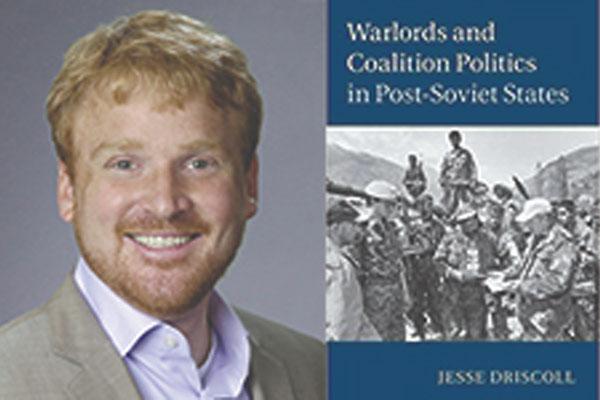Driscoll Wins Furniss Award for 'warlords and Coalition Politics'

The breakup of the Soviet Union was unexpected and unexpectedly peaceful. Although a third of the new states fell into violent conflict, anarchy was soon brought under control. What explains this relatively quick transition to order and stability in the post-Soviet periphery?
Jesse Driscoll, assistant professor of political science at University of California-San Diego, explores this question in Warlords and Coalition Politics in Post-Soviet States (Cambridge University Press, 2015), winner of the Mershon Center's Edgar S. Furniss Book Award.
Driscoll will speak at the Mershon Center at 3:30 p.m. on Thursday, September 14, 2017. More information will be forthcoming about this event.
In his book, Driscoll argues that the relative stability in the post-Soviet periphery cannot be explained by security guarantees from Russia or the United Nations. Rather, in the wake of a failed state, local warlords competed and colluded in a high-risk and ruthless game of forming coalitions that resulted in the emergence of well-functioning domestic hierarchies.
Drawing on a structured comparison of militia members in Georgia and Tajikistan, Driscoll combines rich comparative data with formal modeling, treating the post-Soviet space as a laboratory to observe the limits of great powers' efforts to shape domestic institutions in weak states.
The Furniss Award commemorates the founding director of the Mershon Center, Edgar S. Furniss, and is given annually to an author whose first book makes an exceptional contribution to the study of national and international security. Previous winnersinclude John Mearsheimer, Barry Posen, and Stephen Walt.
At UC-San Diego, Driscoll is an area specialist in Central Asia, the Caucasus and the Russian-speaking world. He serves as chair of the Global Leadership Institute at the School of Global Policy and Strategy.
Driscoll has a secondary interest in political behavior, observer effects in social inquiry, and the ongoing task of cultivating ethical best practices for responsible data collection from active conflict zones. He leverages new technologies and experimental techniques to track public opinion by populations that reside in violent places, including in Somalia, Ukraine and Georgia.
He has lived and worked extensively in the South Caucasus and Central Asia, written about Somalia from an off-shore vantage point, and is currently researching a book on Ukraine's civil war.
Driscoll has a B.S. in foreign service from Georgetown University, an M.A. in security studies from Georgetown, and Ph.D. in political science from Stanford University.
